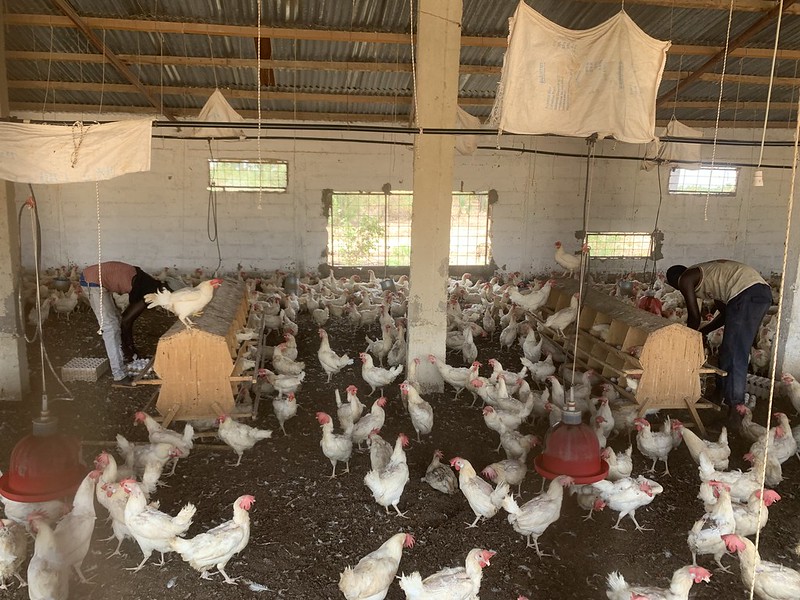
The International Livestock Research Institute (ILRI) has launched a new project, Selecting efficient farm-level antimicrobial stewardship interventions from a One Health perspective, that will use a One Health approach to assess which farm-level antimicrobial use interventions are most efficient to prevent the development and transmission of antimicrobial resistance in poultry in Senegal.
The project will provide explicit impact estimates and ranking for a range of farm-level antimicrobial resistance interventions in Senegal, highlighting where future research could be most valuable in understanding intervention efficiency from a One Health perspective.
The project was launched at a workshop held on 26–27 September 2022 in Senegal. Participants included representatives from the Senegal Ministry of Livestock and Animal Production, the National Veterinary Council, the National One Health Platform, Inter-State School of Veterinary Medicine, Pasteur Institute, public hospitals of Dakar, poultry breeders’ associations and veterinary and medical laboratories.
Also present were veterinary drug importers, private-sector poultry producers, private veterinarians and veterinary researchers from national and international organizations.
Among the topics of discussion were the proposed antimicrobial resistance impact assessment models and human clinical syndromes that the project will study. Project activities were planned and partner roles and responsibilities outlined.
In line with the principles of a One Health approach, participants emphasised the need for closer collaboration and sharing of information with human health experts in the implementation of the project.
Through the Ministry of Livestock and Animal Production, the project will contribute towards training and awareness creation on the rational use of antibiotics in poultry production.
The data and outputs from the project will be made available through a centralised, open access database under Senegal's National One Health Platform. This will give policymakers access to evidence on the impact of antimicrobial resistance in the poultry sector to inform resource allocation towards national antimicrobial resistance control strategies.
In addition, modelling of antimicrobial resistance impact will help in assessing spillover of antimicrobial resistance into the environment as a result of human activities.
ILRI will implement the three-year project in collaboration with the Senegal High National Council for Global Health Security Agenda, mainly the National One Health Platform, the Senegal Ministry of Livestock and Animal Production, the London School of Hygiene and Tropical Medicine and the University of Copenhagen.
The project is funded by the Swedish International Development Cooperation Agency.
For more information, visit the project web page or contact the principal investigator Michel Dione, ILRI senior scientist in animal health (m.dione@cgiar.org).
Access the workshop report (in French)
Citation
Zannou, O., Faye, P.A. and Dione, M. 2022. Choisir des interventions efficaces de gestion des antimicrobiens au niveau de la ferme du point de vue de l’approche une Seule Santé : Cas d’étude du Sénégal. Rapport de l’atelier de lancement du projet « Selecting efficient farm-level antimicrobial stewardship interventions from a One Health perspective (SEFASI) ». Nairobi, Kenya: ILRI.
Photo credit: Peri-urban poultry farming in Thiès, Senegal (photo credit: ILRI/Pape Faye)